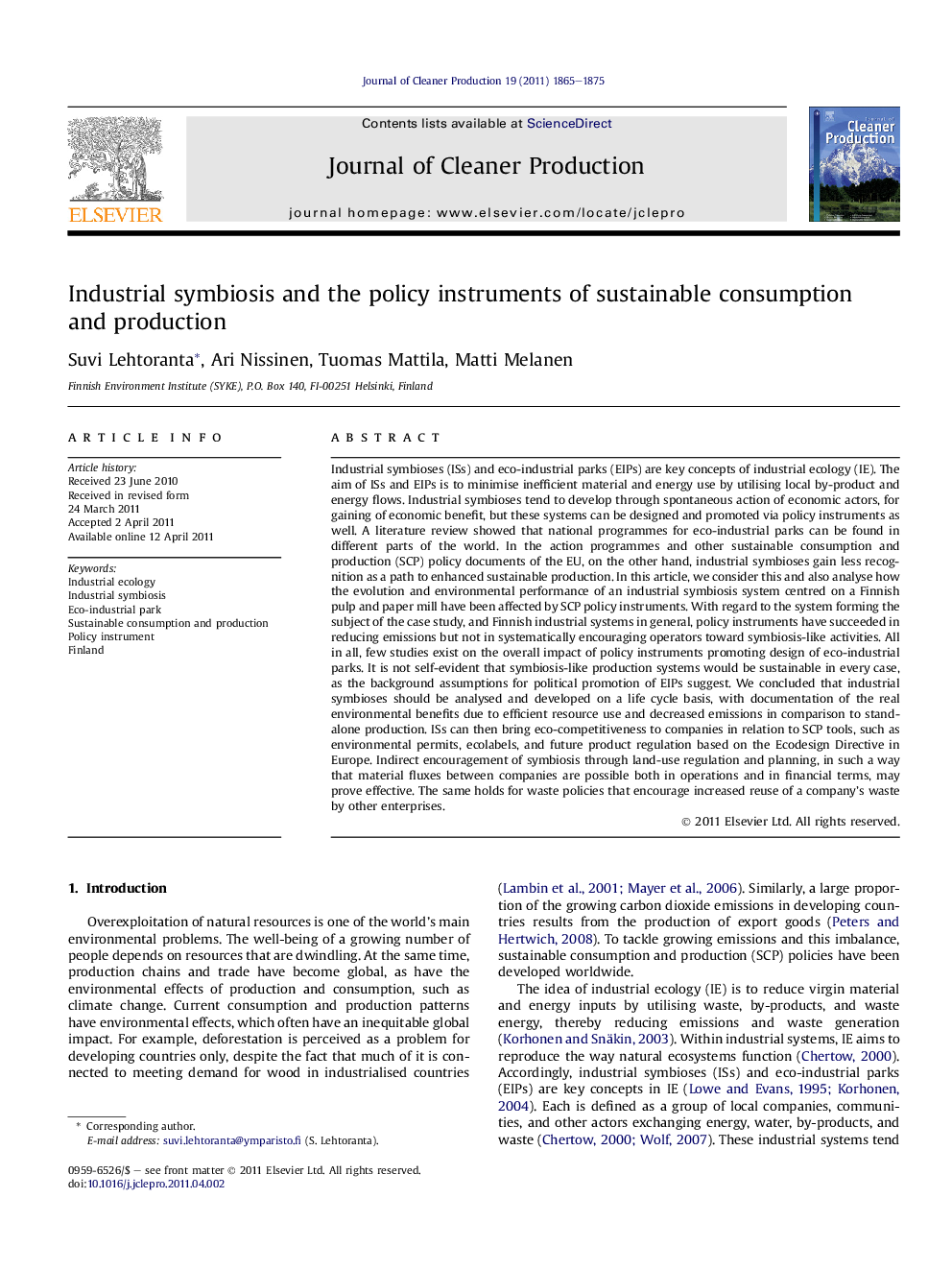| کد مقاله | کد نشریه | سال انتشار | مقاله انگلیسی | نسخه تمام متن |
|---|---|---|---|---|
| 1746046 | 1018076 | 2011 | 11 صفحه PDF | دانلود رایگان |

Industrial symbioses (ISs) and eco-industrial parks (EIPs) are key concepts of industrial ecology (IE). The aim of ISs and EIPs is to minimise inefficient material and energy use by utilising local by-product and energy flows. Industrial symbioses tend to develop through spontaneous action of economic actors, for gaining of economic benefit, but these systems can be designed and promoted via policy instruments as well. A literature review showed that national programmes for eco-industrial parks can be found in different parts of the world. In the action programmes and other sustainable consumption and production (SCP) policy documents of the EU, on the other hand, industrial symbioses gain less recognition as a path to enhanced sustainable production. In this article, we consider this and also analyse how the evolution and environmental performance of an industrial symbiosis system centred on a Finnish pulp and paper mill have been affected by SCP policy instruments. With regard to the system forming the subject of the case study, and Finnish industrial systems in general, policy instruments have succeeded in reducing emissions but not in systematically encouraging operators toward symbiosis-like activities. All in all, few studies exist on the overall impact of policy instruments promoting design of eco-industrial parks. It is not self-evident that symbiosis-like production systems would be sustainable in every case, as the background assumptions for political promotion of EIPs suggest. We concluded that industrial symbioses should be analysed and developed on a life cycle basis, with documentation of the real environmental benefits due to efficient resource use and decreased emissions in comparison to standalone production. ISs can then bring eco-competitiveness to companies in relation to SCP tools, such as environmental permits, ecolabels, and future product regulation based on the Ecodesign Directive in Europe. Indirect encouragement of symbiosis through land-use regulation and planning, in such a way that material fluxes between companies are possible both in operations and in financial terms, may prove effective. The same holds for waste policies that encourage increased reuse of a company’s waste by other enterprises.
Journal: Journal of Cleaner Production - Volume 19, Issue 16, November 2011, Pages 1865–1875